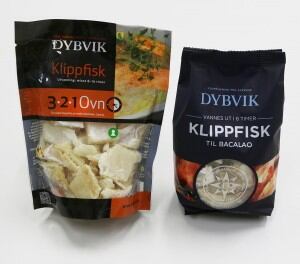Norwegian consumers are more interested in the characteristics of a product, such as taste or suitability for a particular recipe, rather than whether it has been produced in Norway, according to the researchers.
The group of researchers from applied research institute, Nofima, surveyed 850 consumers from across the country and interviewed individuals immediately after they had done their grocery shopping in both large supermarkets and specialist stores.
Consumers who shopped in specialist food stores were “somewhat more” interested in the domestic origin of a product than those purchasing food in supermarkets. But even for these consumers, quality trumped origin.
Milk and fresh fish are exceptions to the rule
“We were surprised by the results. Even though one wants to support the Norwegian food industry in principle, most people don’t consciously choose to support it with their wallets,” said lead researcher Aase Vorre Skuland. "Many hadn’t given any thought to where the food was from. The exceptions were milk and fish, where people deduced that they couldn’t have travelled far due to shelf life.”
The researchers also questioned consumers on what exactly made a product Norwegian. They found that, in this respect, consumers were quite rigorous – a product had to be made using Norwegian ingredients and produced in the country. “But at the same time, it doesn’t seem to be that important to them that the food they buy actually is Norwegian,” added Vorre Skuland.
This was especially true for the ingredient list of processed foods such as fish cakes or frozen pizza, and so the researchers will now closely work with participating food companies to update their products’ branding and packaging based on these insights, bringing them more in line with consumer desires.
Highlight the properties
One company that has already done so as part of the project is Dybvik, a fish manufacturer. While its packaged salt fish product itself remains unchanged, the new packaging provides more information on its characteristics such as ways to use the fish and how to prepare it. The product

itself can still be seen through transparent packaging, as consumers expressed a preference for this, but the size has been reduced.
“Our advice to producers is to highlight the properties of the product and its quality, and to demonstrate how it stands out from the crowd," said Vorre Skuland. "Even products that have won awards for taste or design have no guarantee of selling well. One has to meet the consumers [expectations] on the quality aspects they are willing to pay for.”
Nonetheless, for consumers who believed it was important to buy local or national products, the main reasons given were related to job creation.
The researchers have called on the Norwegian food industry to work together across sectors to improve the reputation of Norwegian food in general.
But consumer preferences for local, organic and quality produce can vary depending on the country.
Last year researchers investigated the differences in attitudes and willingness-to-pay (WTP) between “organic-minded” German consumers, finding that locally produced food, as opposed to food from neighbouring countries or non-EU countries, is preferred over organically produced food by both consumer groups. “[This] demonstrates that organic-minded consumers do not only consider organic food production as important, but also value local food production in a purchase situation,” said the team behind the study.
Meanwhile a YouGov survey carried out in April last year showed that nearly 80% of British consumers see buying local food as a top priority, with vegetables (51%) and meat (40%) coming out top for products that consumers would prefer to buy local.
